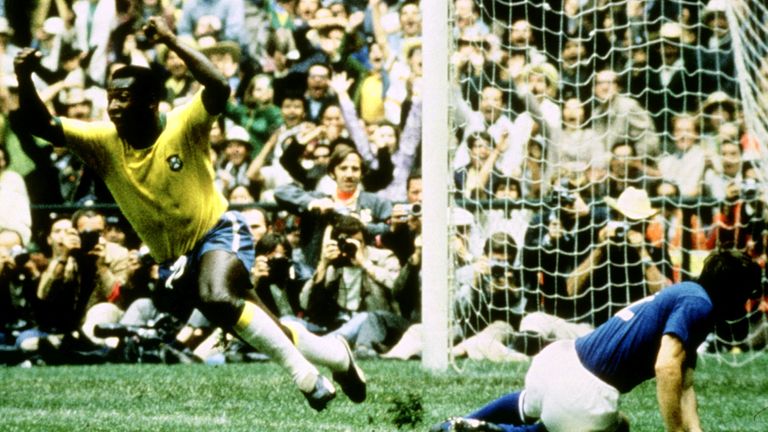What have you done to watch the World Cup?
Living room At your local? You may have been at work during the kick-off time in Qatar.
With the sheer amount of matches each day, it’s probable you’ve caught quite a few on your phone. You can either watch live or catch highlights, and Twitter or WhatsApp are always at your fingertips so you can shout into the void what Gareth Southgate is doing wrong.
It was a dream that many people had long ago of being able watch matches from their phones, no matter where they were located. The World Cup has been an incredible barometer of technology and consumption trends, thanks to its quadrennial nature.
We’ve come a long ways since the 1970 World Cup in Colour, when Pele-led Brazil won the world over in Mexico. In 2006, Germany introduced us to the pin-sharp HD generation. And now, in China, TikTok has the broadcast rights for the tournament.
Peter Moore says, “I am old enough to recall watching football in black-and-white.” He speaks from California, where it is impossible to imagine life in any other colour.
The former EA Sports and Liverpool FC chief executives work from this place on what he believes is the next chapter in the history World Cup broadcasting.
He said that Japan’s second goal was to defeat Germany in the Group E opener.
Manuel Neuer, goalkeeper, one of the best in the last decade was responsible. To see the exact view that he saw, I would love to be allowed to drop my camera in the penalty area while he was filming to see the details of what went wrong.
Germany’s number 1 will be relieved to learn that the solution isn’t to attach a GoPro on his chest. It would be unrealistic to expect Takuma Asano, the Japanese match-winner, to wear smart glasses like a dystopian Edgar Davids.
Instead, Mr Moore’s past at EA is used to find the solution. EA is responsible for blockbuster titles such as Madden NFL, Tiger Woods PGA Tour and – perhaps most importantly – FIFA.
Unimaginable camera angle
Moore says, “The impossible camera angles that you can see in video games, you haven’t been able too in real life.”
“And there is an entire generation that grew up with the controller in their hand, seeing these angles.”
For more than twenty years, players have been able to pause the action and fly their virtual camera across the pitch with the precision and fluidity that broadcasters can only dream about.
As the visuals get more realistic, the possibility to blur the lines between digital and physical becomes even more appealing.
Unity is a videogame software company that is best known for its engine, which it licenses to other developers in order to power their games.
Unity is expanding its product line, just like Epic, a fellow video game studio, has seen its Unreal Engine used beyond games to create backdrops for Star Wars series The Mandalorian.
How does technology work?
Mr Moore is the head of Unity’s sports & live entertainment division and gave a tour of how Unity’s technology has been used in mixed martial arts’ UFC.
Two fighters were captured on “volumetric capture” at a Los Angeles soundstage. Multiple cameras were placed around the fighters to capture the fight. The data is then converted into “voxels”, which are 3D pixels that can be used by powerful computer programs to create photorealistic models.
This resulted in fighters appearing as you would expect from real footage. The data was revisualised and the viewer can dive into any angle.
You can become your own photographer.
Moore says that video games are “real life” and he is able to sweep through the fight using an iPad.
It requires a lot computing power and bandwidth. But, like all tech that I have been involved in, it evolves.”
The ultimate goal is for the equipment captured on sound stages to eventually be used in live venues.
Moore says it will be “ubiquitous” and “accessible to anyone with an touchscreen device” within a few years. This could make it ready for England’s 2026 World Cup victory.
The ambition may be ridiculed by fans, particularly those who spent four-figures on a 3D television a decade ago and promised it would change the face of broadcasting.
Unity sees the technology also as part of the metaverse that we’ve all heard about. For some, is nothing more than a Silicon Valley big tech delusion.
Moore claims that it will be available to everyone, but he is really referring to everyone.
If he was still at Liverpool, where he had spent three years, including the first Premier League title, Jurgen Klopp would pitch it to him as a way to do analysis during games.
It has been a dirty word for coaches, pundits, and fans alike. But Mr Moore believes the technology could change our perception of VAR.
It would be truly a miracle if England won the World Cup.





















